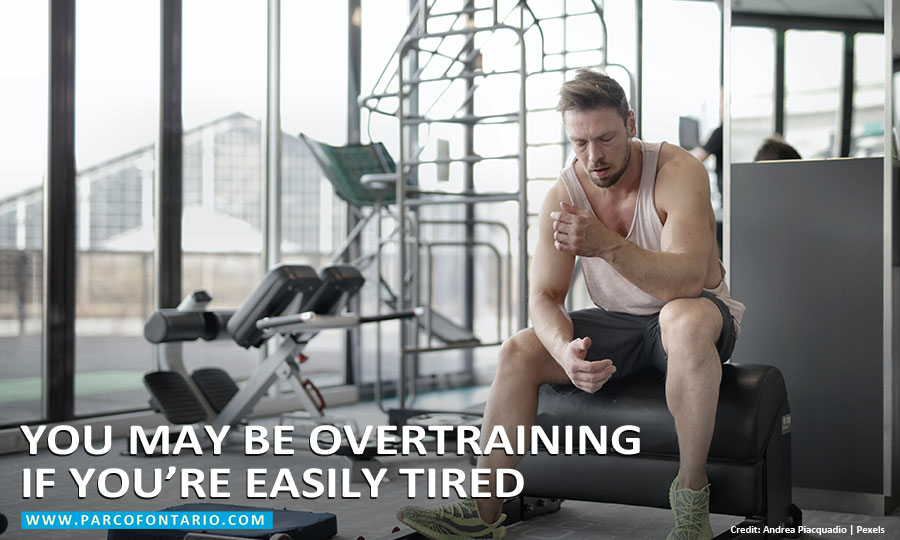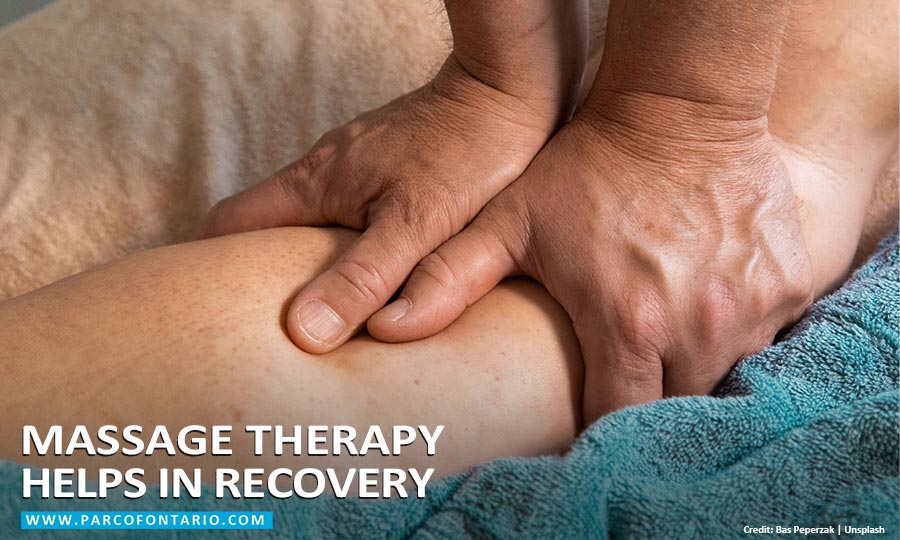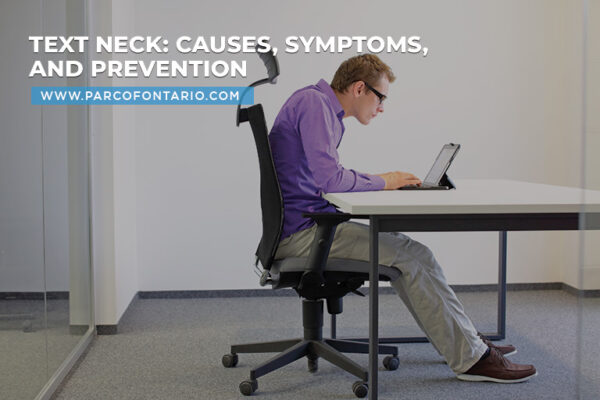Are You Overtraining Your Body?
If a little exercise is good for you, more has to be better, right? To some extent, yes. However, there is a certain point after which the amount of exercise you do might be causing more harm than good. When you exercise without giving yourself adequate time to recover between sessions, you may be overtraining. Too much exercise, especially if they are close together, can be damaging to your health and your intended outcome.

Overtraining is a genuine issue, and it puts your health at risk. It is widely understood that exercising hard to enhance your abilities is necessary, but it must be performed without jeopardizing your mental and physical health. Anyone who feels fatigued, hurt, or overwhelmed after a strenuous workout may be suffering from overtraining syndrome.
What Is Overtraining Syndrome?
Overtraining syndrome occurs when the body is overworked without adequate rest.
It is common among athletes who are preparing for competitions or events without giving themselves enough rest in between. Instead of optimal conditioning and recovery, there is too much workload and too little relaxation. The program ultimately backfires and reduces their performance. Workouts such as weightlifting, aerobics, and high-intensity interval training (HIIT) can all cause the overtraining syndrome.
What Are the Signs of Overtraining?
The signs and symptoms of overtraining syndrome can manifest both physically and psychologically. The main warning indication is extraordinary tiredness. However, many symptoms are minor and may not be noticed until it is too late.
Here’s what happens if you over-exercise:
- Fatigue
Although it’s natural to feel fatigued after a workout, fatigue happens when the body has not yet completely recovered. It’s not the same as being tired. Fatigue can cause agitation, decreased motivation, increase in body temperature, or difficulty falling or staying asleep.
Fatigue can also occur if you do not consume sufficient nourishment before exercising. The persistent, negative energy expenditure causes “low energy availability,” which means the body is constantly drawing energy from its own reserves — carbs, protein, and fat.
- Insomnia
Sleep is the best time for the body to rest and heal itself. Increased production of stress hormones — cortisol and epinephrine — may prevent you from totally relaxing or winding down, making sleep less beneficial. This reduces the amount of time your body has to rest, mend, and renew itself while you sleep. Chronic weariness and mood swings might be caused by a lack of adequate sleep.
- Loss of appetite
A healthy appetite is frequently promoted by exercise. Too much of it, on the other hand, might result in hormonal abnormalities that can affect how hungry or full you feel. Because your body gets its energy and nutrition from food, restricting your diet might be harmful. You might even lose weight as a result.
Over time, not eating enough can lead to cardiovascular or gastrointestinal problems. It may also cause problems with your nervous or reproductive systems. Female athletes may even go through period loss or irregular periods.
- Mood Swings
Irritation, moodiness, and, to a lesser extent, depression are common symptoms of overtraining syndrome. Stress hormones are affected by overloading, resulting in emotional and behavioural problems. Overtraining is also associated with agitation, loss of concentration, and restlessness.
- Performance decline

Overtraining might lead to the exact opposite of your desired results. Your performance may wind up plateauing or diminishing rather than improving. You may discover that you have diminished strength, agility, and endurance, making it more difficult to meet your training objectives. Overtraining can also reduce your response time and speed. A sharp decline in performance should serve as a reminder to balance your activities and rest.
- Persistent injuries
Some effects of overtraining could be long-term. Muscles and joints that are overworked might lead to persistent aches and pains. Pain that lasts longer than 2 weeks should be regarded as a serious injury. Overtraining strains the body’s systems and makes it much more difficult to avoid injuries and illnesses. Excessive high-impact exercise, such as running, lifting, or jumping, causes inflammation, wear, and tear on your body. Shin splints, stress fractures, tendonitis, and plantar fasciitis are just a few examples of overuse injuries.
- Reduced immunity
Exercise is commonly acknowledged to improve immunity. Recent studies, however, have shown that those who engage in excessive strenuous exercise have a higher risk of sickness. While further research is needed to fully establish the relation, the current findings imply that continuous high-intensity training can weaken the immune system. Athletes and other high-performance professionals, such as the military, are prone to upper respiratory tract infections, latent virus reactivation, and decreased immune responses to immunizations.
- Soreness, strain, and pain
After an exercise, muscular sores are natural, but the persistent muscle and joint pains indicate that you’ve stretched yourself beyond your limits. Overtraining your body can induce microtears in your muscles, which could also explain why it takes more time for your body to repair and recover.
- Weight Gain
Weight loss is often a more expected result of exercise, but stress-related hormonal swings make it more difficult to lose weight. Overtraining and physically demanding activities without sufficient recovery can result in low testosterone and high cortisol levels, which are frequently related to muscle tissue loss, weight gain, and extra belly fat. As a result of overtraining, you may be adding more pounds instead.
How to Avoid Overtraining?

Thankfully, every sign of overtraining syndrome can be easily treated and overcome. It all starts with a change in your training habits.
- Get some rest
One of the most effective ways to recover from overtraining syndrome is to take a complete break. Learn to take a breather and allow yourself plenty of time to recuperate in between workouts. The time, intensity, and style of training all influence how much recovery is needed. The more difficult the workout, the longer it takes to recover. Even if you feel compelled to exercise, don’t shorten your recovery time. It’s in your best interests.
- Listen to your body
It is quite tough to evaluate your body’s capabilities. So, you may be pushing yourself too hard and not realize it until it is too late. Pay attention to your body and watch for warning indications, including breathing difficulty, excessive sweating, and any form of discomfort.
- Change your routine
Occasionally, switch up your regimen. To minimize overuse injuries, avoid doing too much of the same exercise activity. Cross-training is also recommended to help you build a new set of skills while also varying the load imposed on individual muscles. You could, for example, cycle and swim this week and then run and lift weights the following week.
- Increase intensity gradually
Another way to minimize overtraining is to avoid abrupt increases in training intensity. Allow your body time to acclimatize and recuperate from the changes by doing it in stages. It is also beneficial to keep a fitness diary to track your progress, time, and food, among other things.
- Go for a professional massage

People, especially athletes, recovering from strenuous workouts, surgeries, and injuries might greatly benefit from physical therapy. A qualified therapist can target the damaged muscles to prevent more problems, ease tension, and speed up the healing process.
Depending on your activity, recovering from overtraining syndrome may take weeks or months. If you identify these symptoms of overtraining in yourself, seek help from a professional immediately.
Let The Physiotherapy and Rehabilitation Centres of Ontario assist your healing! For much-need massage therapy in Oshawa, call us at (905) 579-9938 now.



